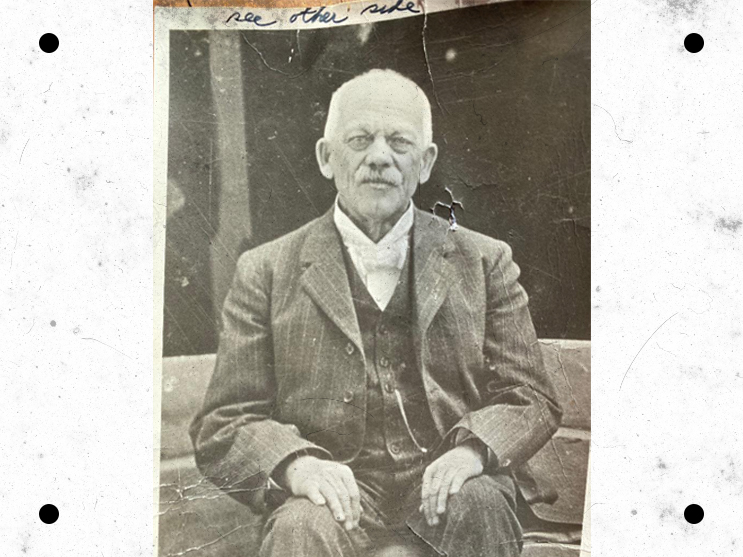Few people in the history of Shelby County have chronicled our history better than William Binkley. Born in Berks County, Pennsylvania in October 1844, he moved west as a young man. After a brief stint in Urbana, having met and married English born Elizabeth Hannah Chapple, he moved on to Sidney. There he entered into partnership with R.H. Trego, and together they purchased The Sidney Journal. The oldest newspaper in Shelby County, the Journal had fallen on hard times to the extent it was near to financial ruin. The year was 1869.
The partners divided duties in an effective manner. Binkley, who was a talented writer, served as editor. Trego was the business manager. This very successful business relationship lasted 36 years.
The Sidney Journal had always been of the Republican persuasion and that affiliation aligned well with the sentiments of its owners. Although Mr. Binkley never ran for political office, he typically supported those who advanced Republican principles.
As an editor William Binkley had few peers. His great grandson, Dr. Albert Binkley Dickas, in authoring a comprehensive biography of Binkley’s years as editor, offered this telling comment:
“He could neither tolerate stupidity nor applaud mediocrity, and indifference
was never his style. Most certainly, he did not suffer fools, but instead consistently
and without seeking reward, exercised his responsibility as an editor- using the
bully pulpit of the Journal to advance the fortunes of his adopted hometown and
county and his political party.”
Soon after he arrived in Sidney William Binkley developed a vision of what he thought the community could become with the right leadership. One of his first editorials contained these stirring words:
“We have unusual and remarkable facilities for water power. We have good
railroad connections. The quality of our land is excellent. The hospitality of our
people is proverbial. What more is needed? In fact, nothing but decisive action.
Sidney would soon gain the prominence and importance to which it is entitled
if only we had a few good men who would make themselves leaders in the
movement.”
Within a year of arrival in Sidney he wrote a stirring editorial supporting a community library. Citizens responded immediately by subscribing stock in the new organization and Mr. Binkley was elected its first librarian. Simultaneously, the power of his pen was employed to propose replacement of the existing volunteer bucket-brigade system with a modern fire department.
During the next year Binkley promoted construction of the City Water Works on Brooklyn Avenue, a facility that eventually became the City Light Plant. Water was supplied from Mosquito Creek, flowing through what is now Tawawa Park. In 1887 he pushed for an expanded source when the growth of the town demanded more and cleaner water. The result was a switch to a system of water wells, supplemented by discharge from the Great Miami River.
Upon his arrival in July 1869, Binkley noticed interest in a Civil War memorial marble obelisk had waned. It was he who promoted the new idea of a Monumental Building to honor the war dead. Today one can find his name chiseled onto the surface of Big Rock in Tawawa Park, along with the names of the stonecutters who worked on the building.
Binkley was integral in formation of the Progressive Union, a program launched with interests in citywide beautification. In 1892 Sidney was still a frontier town built around an unappealing network of muddy roads and pathways. Union membership supported the construction of sidewalks, the planting of ornamental trees, and the establishment of a Fishing and Boating Club at Tawawa Lake.
William Binkley was a man ahead of his time and a visionary who set the standard by which all future leaders would be judged.
